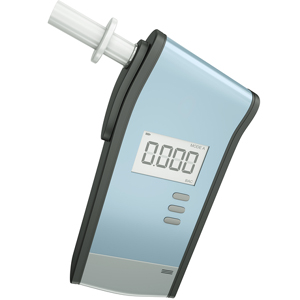Lawyer accused of smelling of alcohol at client's felony trial gets suspension

Image from Shutterstock.com.
An Ohio lawyer has been suspended after he was accused of showing up for a client’s felony trial smelling of alcohol and refusing to submit to a breath-alcohol test.
Brian Joseph Halligan of Ashland, Ohio, was suspended for two years with 18 months stayed, provided that he engages in no further misconduct and he completes an assessment by the Ohio Lawyers Assistance Program. Court News Ohio and the Mansfield News Journal have coverage of the Ohio Supreme Court’s Sept. 19 decision.
A judge refused to allow Halligan to represent the felony client at his January 2017 trial after the client accused Halligan of being intoxicated. But Halligan’s troubles didn’t end there, according to the court’s decision. Police officers arrested Halligan the same day after they found him seated in his car and noted signs of intoxication.
A blood draw performed about four hours after the trial was scheduled to start found that Halligan’s blood-alcohol concentration was 0.108, which is above the legal limit of 0.08.
Halligan was charged with the misdemeanor offense of having physical control of a vehicle while impaired, which led to revocation of driving privileges that had been granted in a prior misdemeanor impaired-driving case about a month before.
Halligan never received notice that his driving privileges had been revoked, and he was arrested when he drove away from a March 2017 hearing on one of the physical-control charges. Halligan eventually pleaded guilty to both charges and a charge of driving while under suspension.
But the January 2017 arrest had further repercussions. Police had seized Halligan’s cellphone and kept it for about three months. That meant Halligan didn’t get a client’s text messages reminding him about an upcoming February trial of his small-claims case. Halligan didn’t show up for the trial, and he didn’t refund any portion of his $200 flat fee, the opinion said.
Halligan also failed to appear for a February 2017 hearing on behalf of a management company client suing a tenant for unpaid rent. He had also submitted a filing fee in the case that was returned for being a dollar short, the decision said. The case was dismissed.
Halligan testified at his disciplinary hearing that he had periodic issues with alcohol for 10 to 15 years. He said he had several years of sobriety but began drinking again to help him sleep and avoid taking opiates after a 2015 surgery. He had no prior disciplinary offenses.
Before Halligan is reinstated to law practice he will have to prove that he complied with court-ordered probation in the impaired-control-of-a-vehicle cases, that he has abstained from alcohol, and that he complied with the terms of any contract arising from his assistance-program assessment. After reinstatement, he must serve 18 months of disciplinary probation.
A partial dissent disagreed with the “the generic, standard-free way” that the court imposed probation after Halligan’s reinstatement.
A phone number listed for Halligan by the state bar was disconnected.



